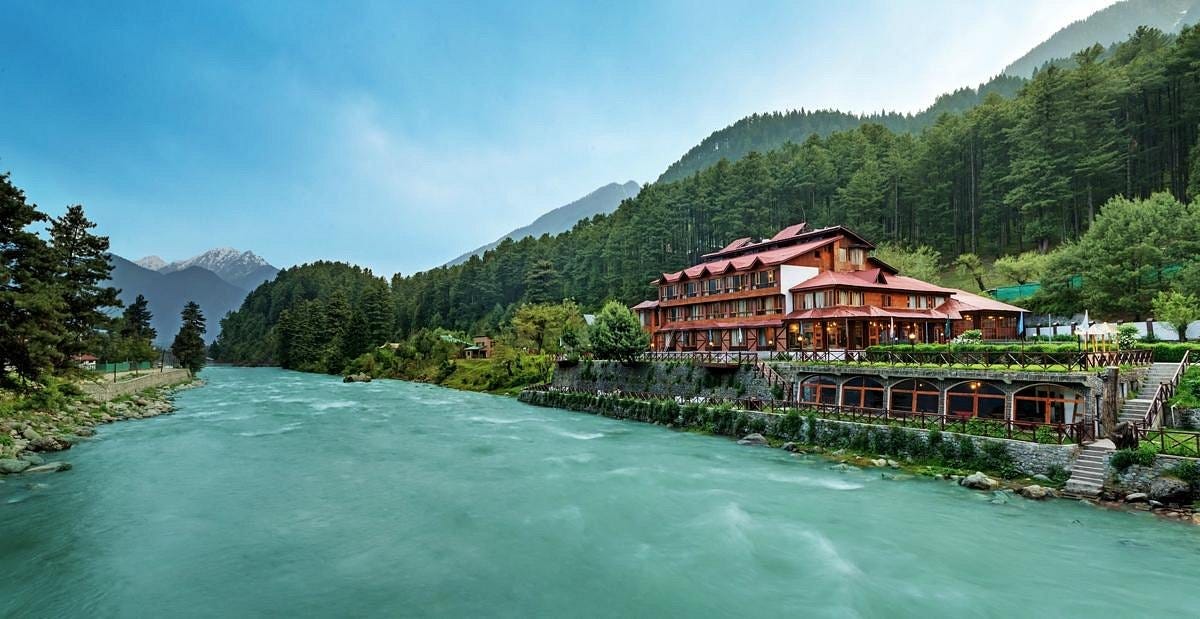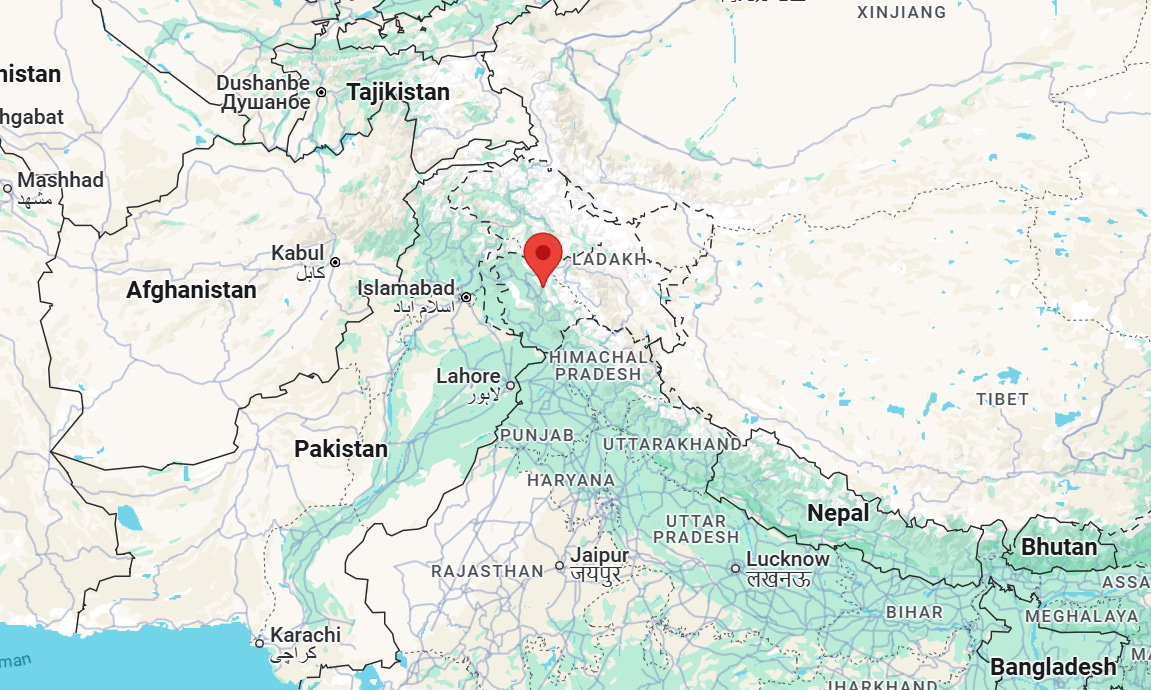By: Majid Maqbool
The carefully maintained calm in India’s restive Kashmir province has been shattered again by the sound of gunfire ringing through the Himalayan meadows of the Pahalgam hill station on April 22, taking the lives of at least 26 tourists, mostly Indian males, and injuring 10 others as gunmen stalked through the area, shooting defenseless people at will.
One of the most serious casualties is likely to be the already-fraught relations between India and its perpetual adversary, Pakistan, the alleged home of at least two of the attackers. Relations between the two countries, never cordial, have been deteriorating for the better part of a decade.
Regardless of the perpetrators, the atrocity has to be seen in the context of the rivalry between the two, which for seven decades has both claimed dominion over the spectacularly scenic Jammu & Kashmir region. India revoked the region’s autonomous status in 2019, sparking antagonism in the mostly Muslim population and sporadic clashes between Indian and Pakistani forces and periodic attacks by militant groups.
The Kashmir valley, one of the world’s premier tourism destinations, is another victim. The attack has weakened the narrative of restored normalcy in Kashmir pushed by the BJP-led government in New Delhi while raising questions about the effectiveness of governance without locally elected representatives. The central government is certain to further tighten control by taking more stringent security measures, and further delay taking decisive steps to restore the longstanding demand for statehood. Rebuilding trust, restoring democratic institutions by granting statehood, and involving local stakeholders, particularly the local elected government, are vital steps to help achieve long-term peace and stability. They are further away than ever.
Trade and civil society bodies ordered a complete shutdown following the attack as droves of tourists fled by air, bus, car, and any other means. Schools, colleges, and business establishments remained shut in protest against the killings while Kashmir’s leaders across the religious, political, and ideological spectrum condemned the attack and took out protest marches. Thousands of people in the valley, including those associated with hotels, restaurants, and recreational activities, earn their livelihood every year during the peak tourist season starting April throughout the summer.
Local police issued a lookout notice naming three of the four suspected gunmen behind the attack. Among the three, who police claim are members of the Pakistan-based militant organization Lashkar-e-Taiba (LeT), two are from Pakistan while the third is a local from Anantnag district of Kashmir. Top police sources say around 1,500 people have been detained for questioning while the manhunt is on.
The Resistance Front (TRF), a proxy of the Pakistan-based terror group Lashkar-e-Taiba (LeT), took responsibility for the attack. The Front came into existence after August 5, 2019, following the revocation of the region’s special status. TRF was declared a terrorist organization by the Ministry of Home Affairs (MHA) in January 2023 for “propaganda on terror activities, recruitment of terrorists, infiltration of terrorists and smuggling of weapons and narcotics from Pakistan into the valley.”
As per the 2023 designation, TRF “recruits youth through online medium for furtherance of terrorist activities and has been also involved in carrying out propaganda on terror activities, recruitment of terrorists, infiltration of terrorists and smuggling of weapons and narcotics from Pakistan into J&K.”
On Wednesday, India summoned the Pakistan Charge d’ Affaires Saad Warraich, who was handed a note regarding measures taken by the Cabinet Committee on Security (CSS) on Tuesday. The Pakistani government emphatically disavowed any connection to the affair, calling it home-grown terrorism.
Nonetheless, the central government called an all-party meeting in the Parliament, chaired by Defense Minister Rajnath Singh. Among other actions, India revoked the Indus Waters Treaty between the two countries “with immediate effect,” despite it surviving four wars and decades of cross-border terrorism. India also closed a major border print, canceled visas, and expelled Pakistani personnel. Islamabad retaliated by closing its airspace to Indian flights, canceling visas to Indian nationals, and expelling some diplomats.
“The Indus Waters Treaty of 1960 will be held in abeyance with immediate effect, until Pakistan credibly and irrevocably abjures its support for cross-border terrorism,” Foreign Secretary Vikram Misri said, although the suspension won’t have an immediate impact on the flow of water to Pakistan for a few years at least. India doesn’t currently have the infrastructure to either stop the flow of water into Pakistan, or to divert it for its own use. But revocation of the treaty, which has no exit clause for either side, is a flashpoint with unknown repercussions.
Ajai Sahni, executive director of the New Delhi-based Institute for Conflict Management and South Asia Terrorism Portal (SATP), told Asia Sentinel that the steps already announced by the Indian government after the attack have “significant symbolic value,” and convey the seriousness with which the Pahalgam attack has been viewed.
“Their immediate impact is unlikely to be significant,” he said. “However, the government is also assessing other actions which are unlikely to be debated in public. Given statements from the very top leadership, as well as actions such as the Defense Minister’s all-party meeting, it is safe to surmise that the measures announced till now are far from the end of India’s retaliation. I don’t think the current crisis and the Centre’s responses will have any direct impact on centre-state relations.”
Pravin Sawhney, New Delhi-based editor of FORCE magazine who regularly writes on strategic, defense, and foreign policy issues, said that the Modi government has responded as best as it could with diplomatic reprisals to the Pahalgam attack.
“India doesn’t have a military option – other than hotting up the already hot Line of Control – since they were ended starting 2014 by four actions of the Prime Minister,” Sawhney said in a tweet.
“The Modi government’s 2016 and 2019 shabby use of military force against Pakistan exposed not only the Indian Army & IAF’s operational gaps to the world. They showed the Indian military’s weak leadership unable to question political authority on professional matters,” Sawhney said in a series of tweets. Sawhney said he doesn’t see likelihood of another India-Pakistan war following the Pahalgam attack but added that “if India was to take such a step as to terminate Indus Water Treaty, an escalation cannot be ruled out.”
Ghazala Wahab, author and an expert on homeland security, terrorism, and Jammu and Kashmir-related issues, told Asia Sentinel that the Indian government’s response shows that it doesn’t think a military option is available against Pakistan at the moment.
“Both surgical strikes and the Balakot air strike created more effect than impact. So unless Pakistan escalates the situation following suspension of the Indus Water Treaty, India is not likely to do anything further,” Wahab told Asia Sentinel.
Wahab said that India-Pakistan relations have been non-existent since 2017 and now even the illusion of the relationship has been shattered.
“For many years now, India has had no desire to have a normal relationship with Pakistan. It believes it doesn’t need to have a normal relationship with it because continuous tension with Pakistan helps in shaping an electorally profitable narrative among its core voter base,” said Wahab.
Since the present Pakistan army chief, Gen. Asim Munir, took over, Wahab said, Pakistan has had no desire for a normal relationship either. “His recent speech shows that he finds tension with India useful. So, at least until there is an external influence, India-Pakistan relations will remain non-existent,” she said.
A Kashmir-based political commentator and analyst, who wished to remain anonymous, said that domestically, the aftermath of the attack will be an “enhanced suppression of the Kashmiri people.”
“Internationally, however, India’s soft power enables it to seek support from other authoritarian nations around the world who look at the event without any context and history and rely on the global wave of Islamophobia,” he said.
The analyst also pointed out that the hopes of restoration of statehood of the current chief minister of Jammu and Kashmir Omar Abdullah may also be put to rest for some time “as will be the participation of Kashmir-based political parties in the administrative affairs of the UT.”



